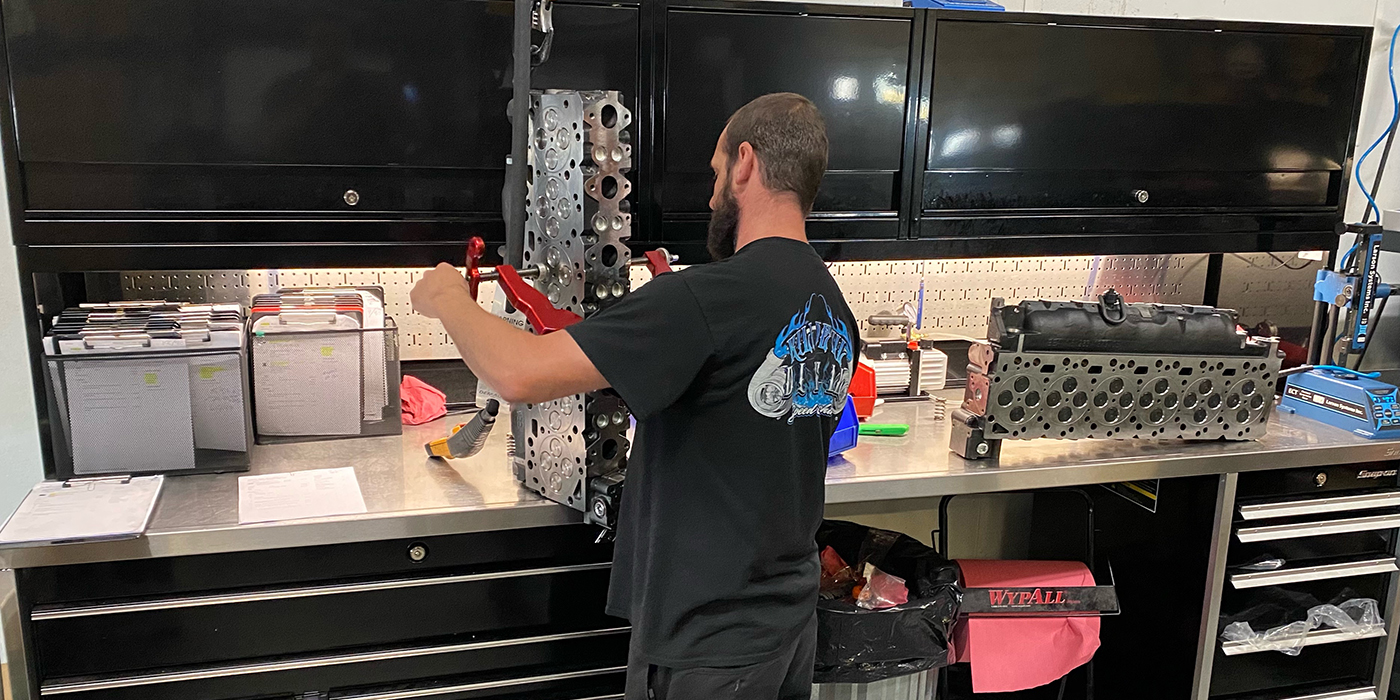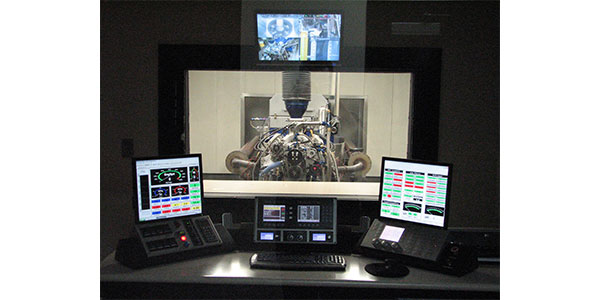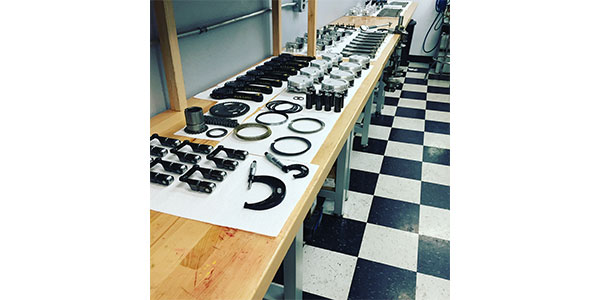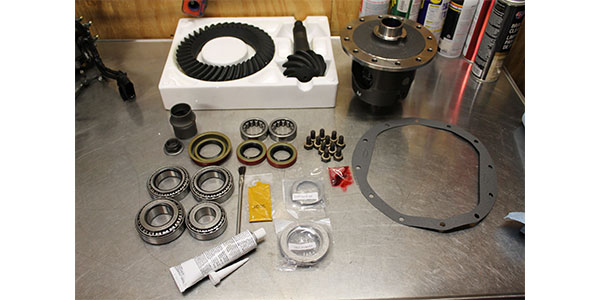Your engine shop may be great at rebuilding powerplants for customers, but one thing your staff can’t do is build “more time.”
Whether it’s silver, gold, platinum, diamonds, rubies or even cold, hard cash, we take numerous measures each day to protect our valuable items, some more drastic than others.

We use locks, banks, safes and alarms to ensure their safe protection. We lock our homes, cars and businesses in order to safeguard our personal possessions and the things that are important to us.
And yet, what is commonly overlooked, is something more valuable; so valuable that once it’s lost, you have no hope of ever recovering it. We all have the exact same amount of it each day, and tomorrow, we start off with a fresh batch of it. Some of us use it much better than others and make the very best of it. What I’m talking about is time.
While we don’t know when “our time” will ultimately end, we do know that each day we are given 24 hours or 1,440 minutes. It’s up to us to make the most of that precious time and do everything in our power to protect ourselves from nonproductive use of it.
Time Stealers
Each day, engine builders and shop owners are confronted with a myriad of choices as to what to do with their time.
Furthermore, each day, everyone has a vast number of time stealers that are unmercifully ready to take what they don’t protect.
Much like steam rising from the top of a boiling pot of your favorite pasta, once time is gone, it’s gone forever.
Identify Them
Like any security flaw, it’s necessary to first identify the weakness before putting measures in place to better protect one’s valuable items.
So, let’s look at some time stealers and see if you can relate to a few.
Lack Of Planning
This is when you show up at the shop and the day takes on a life of its own. You find yourself surfing from one challenge to another and really not getting anything accomplished until after you have put out most of the fires.
Suggestion: The best way to combat a potential lack of planning is to start off each day with a list of items you want to accomplish and consider that list your road map for the day.
Like any journey, you may have side trips, but by the end of your day you’re closer to your destination. Starting out your day in this way will help keep you on track.
E-mail, Internet And Smart Phones
Wow, these can be the “black hole” of time stealers! According to The Harris Interactive Poll, the average person spends 13 hours a week on the Internet via their computer and smart phone.
Another recent study by Nokia says that we check our smart phone once every 6 1/2 minutes, which amounts to 150 times in a 16-hour day!
Suggestions: Check the Internet and answer e-mails during down periods. Remember that keeping up with things on the Internet won’t change their outcome.
Also, a ringing phone doesn’t always need to be answered; let it go to voicemail and tend to it when you can dedicate time to the person who called.
Interruptions
Have you ever found yourself working on a project and someone stops in with a “quick question”? Well, it never really is quick and it can take you 15 minutes to get back on track once you wrap things up with the person who just dropped in.
Suggestion: Have a method in place to communicate to your staff whether you are available or not. At Vic’s, I have a sliding sign on my doorway that shows my availability.
If the sign indicates that I’m on “Green Time,” I’m available for any need. Whereas, “Red Time” signifies that it’s not a good time unless there’s an emergency. This works out really well for us and I have shared it with others who have effectively put this practice into place.
Phone Calls
As a shop owner, you are most likely off the counter and your shop/service manager is ordering parts online, right? If not, they should be, as it boosts their productivity.
As an owner, your phone rings for different reasons. Just because it rings doesn’t mean you have to pick it up, as mentioned earlier. Let it roll into voicemail and get to it when you have the time.
Also, if you want to be really focused, set your cell phone on “do not disturb” and you won’t be tempted to pick up the ringing phone.
Meetings
Whether it’s with a customer, vendor or employee, professionals spend 5.6 hours a week in meetings, according to the Microsoft Office Personal Productivity Challenge (PPC) study.
Suggestion: Plan your meeting objectives well in advance and set time limits for each specific area of discussion. Planning is applicable mainly to your vendor and employee relationships.
Know How To Say ‘No’
As a general rule, if people – customers or employees – can dump their issue at your feet, they will. We had a customer who needed her 90,000-mile vehicle service done in two hours because she and her family were leaving for their vacation that afternoon and she had forgotten to come in earlier.
While my answer was “Yes, I can get you in and perform the service,” we completed it on our schedule, which was later than she wanted. Our customer did not get to leave when she wanted, but her lack of planning was not going to be an emergency on our part.
Even a performance engine shop considers themselves as being in the service business. It’s in your nature to want to please our customers, whether they are internal or external customers.
Learning when to say no can be beneficial not only financially, but also when it comes to being more productive time-wise.
The Bottom Line
If you don’t guard your time, no one will. So take inventory of the areas that need to be addressed and you will give yourself more time to do what pleases you, and take charge of your day. The end result will be a happier you and a more profitable shop!
Want to share your time-stealing tips? Drop me a line at vic@Vics Precision.com.
Vic Tarasik is the owner of Vic’s Precision Automotive, The Woodlands, TX.










